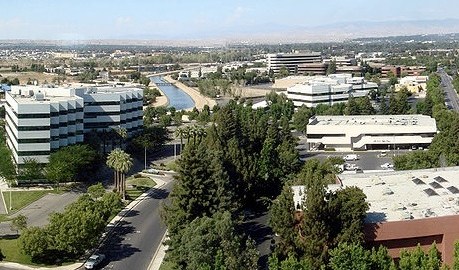White Roofs Really Do Make Cities Greener

Most of us are more worried this week about digging our cars out of drifts in snowmaggedon’s wake than we are about mitigating summer heat, but the National Center for Atmospheric Research (NCAR) is thinking ahead for us all. In a recent study, NCAR found that, come summer, increasing the number of white roofs in urban areas really could help reduce the urban heat island effect, which can make cities 1-3 degrees (Celsius) hotter than rural areas.
Energy Secretary Steven Chu has long been a proponent of the white roof movement, and now he’s got hard evidence backing him.
The NCAR study, done with computer modeling, found that if every roof in every major city were painted white, the urban heat island effect could be reduced by as much as 33% and cool cities by .7 degrees F on average. New York could see drops of nearly 2 degrees F on some of the hottest summer days. (Amen)
Unfortunately, the study’s authors seem overly pessimistic and hesitant about cities’ ability to galvanize support for the white roof cause and rally public officials around it. “It remains to be seen if it’s actually feasible for cities to paint their roofs white, but the idea certainly warrants further investigation,” said NCAR scientist Keith Oleson, the lead author of the study.
Really? It remains to be seen if it’s actually feasible for cities to paint their roofs white? Isn’t that sort of like saying that it remains to be seen if it’s actually feasible for cities to repair their roads? Isn’t this just a matter of putting in the time, energy, political support, grassroots efforts, and money? In the past year, I’ve gotten several emails from various green groups calling volunteers for white roof projects in the New York area – the push for white roofs is already begun, and seems like one of the most “feasible” climate change mitigation and adaptation efforts available to us. No need to overhaul or even tinker with infrastructure, no need to invent new technologies. As President Calvin Coolidge put it: “We cannot do everything at once, but we can do something at once.” Getting on board for an urban white out seems like a ‘something’ we should be able to do relatively ‘at once.’





